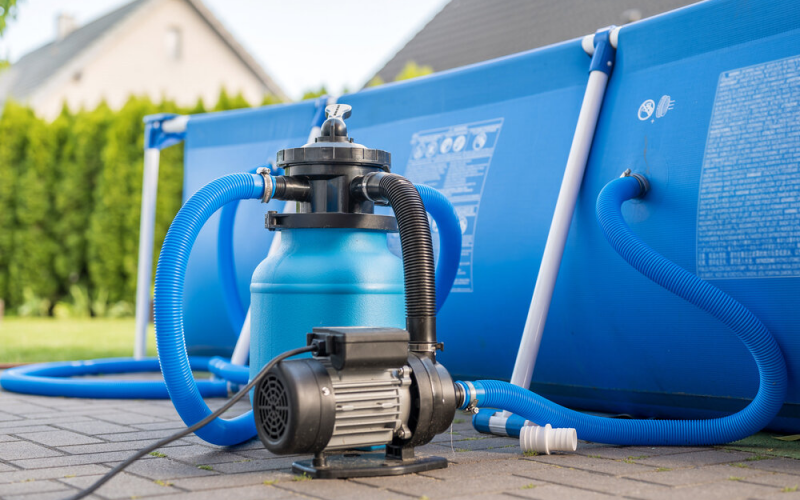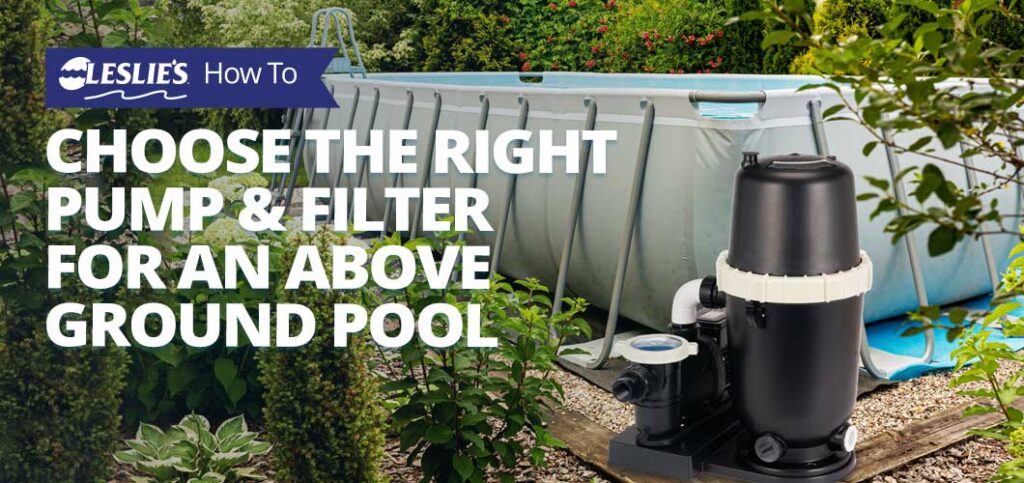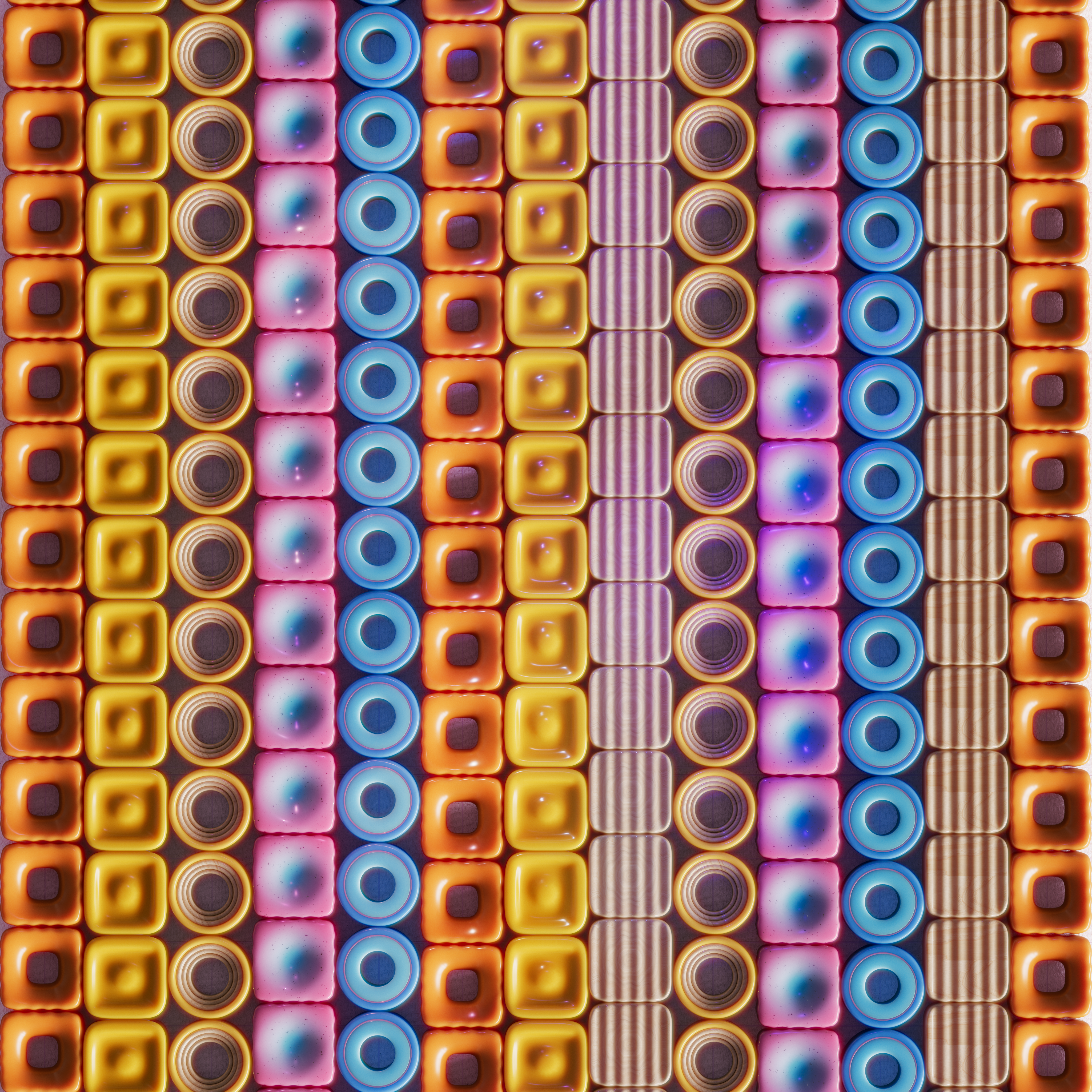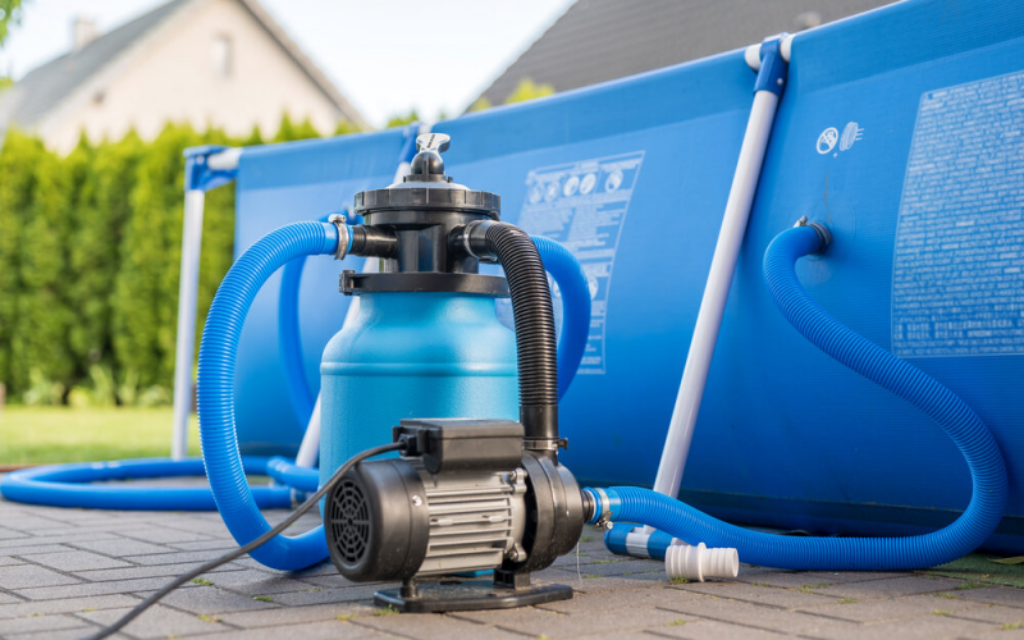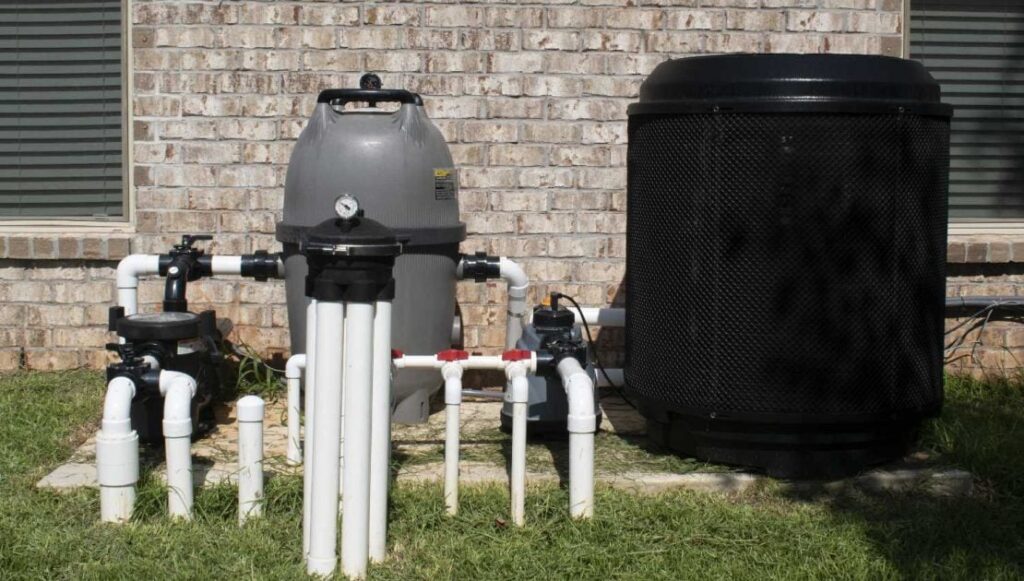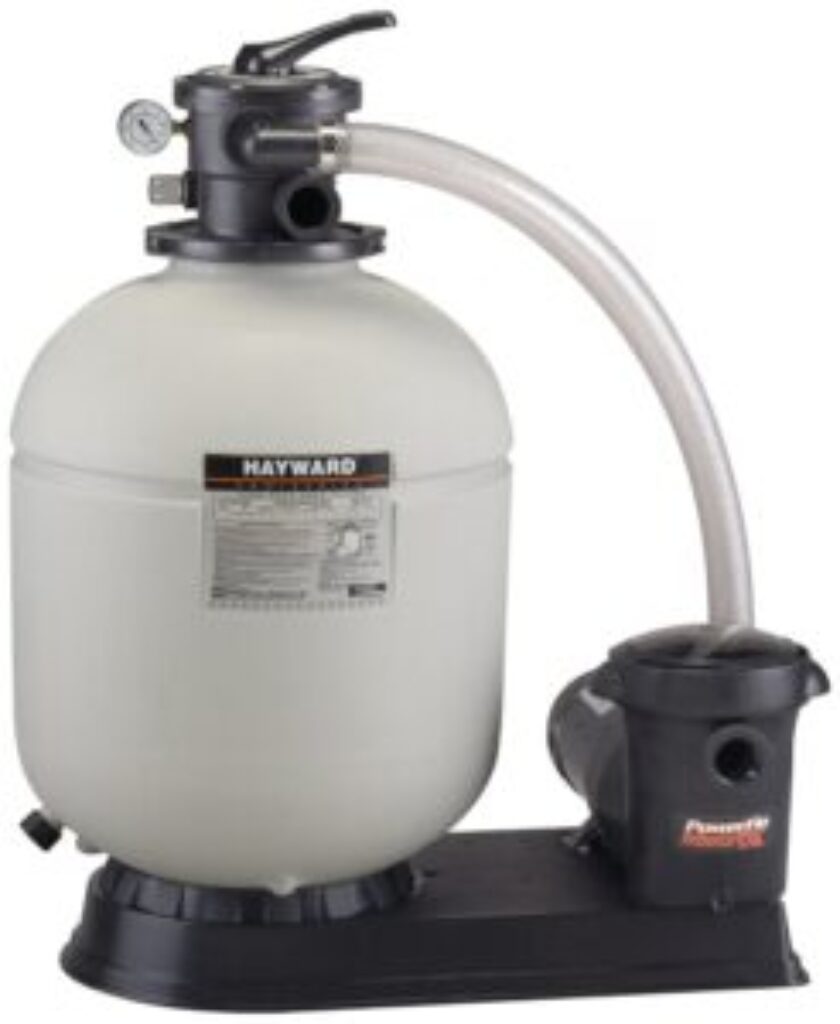Are you a proud owner of an above ground pool and in need of a filter system? Look no further – this article is here to guide you in choosing the right filter system for your pool. We understand that finding the perfect filter can be overwhelming, with so many options available on the market. However, by considering factors such as filtration type, maintenance requirements, and pool size, you can make an informed decision that will keep your pool sparkling clean all summer long. So, let’s dive in and explore the world of filter systems for your above ground pool!
This image is property of blog.lesliespool.com.
1. Types of Filter Systems
1.1 Sand Filters
Sand filters are one of the most popular types of filter systems for above ground pools. They work by trapping particles and debris in the filter sand, allowing clean water to flow back into the pool. Sand filters are known for their efficiency in removing large particles and contaminants from the water. They are also easy to maintain and require minimal effort to backwash the filter when it becomes clogged. Sand filters are suitable for pools of all sizes and are a cost-effective option for keeping your pool water clean and clear.
1.2 Cartridge Filters
Cartridge filters are another commonly used filter system for above ground pools. These filters consist of a cartridge made of pleated fabric that traps dirt, debris, and other contaminants as the water passes through it. Cartridge filters offer excellent filtration efficiency, as they can trap particles as small as 10 to 20 microns. They are also relatively easy to clean and maintain. Cartridge filters are a popular choice for pool owners who prefer a low-maintenance filter system with excellent filtration capabilities.
1.3 Diatomaceous Earth (DE) Filters
Diatomaceous Earth (DE) filters are known for their superior filtration capabilities. These filters use a fine powder called diatomaceous earth to trap particles and impurities in the pool water. DE filters can remove particles as small as 2 to 5 microns, making them the most efficient filter system available. However, DE filters require more maintenance compared to sand and cartridge filters, as the filter media needs to be replaced periodically. If you prioritize filtration efficiency above all else, a DE filter may be the ideal choice for your above ground pool.
2. Pool Size and Water Volume
When choosing a filter system for your above ground pool, it is important to consider the pool’s size and water volume. Larger pools with higher water volumes require more powerful filter systems to ensure optimal filtration. If you have a smaller pool, a sand or cartridge filter may be sufficient to keep the water clean. However, for larger above ground pools, a DE filter will provide the best filtration performance and ensure crystal-clear water throughout the swimming season.
3. Filtration Efficiency
3.1 Micron Rating
The micron rating of a filter system indicates its ability to remove particles of a specific size from the water. The lower the micron rating, the finer the particles the filter can trap. Sand filters typically have a micron rating between twenty and fifty microns, cartridge filters can trap particles as small as 10 to 20 microns, and DE filters are capable of capturing particles as small as 2 to 5 microns. When choosing a filter system, consider the size of the particles you want to remove from your pool water to ensure efficient filtration.
3.2 Flow Rate
The flow rate of a filter system refers to the amount of water it can process in a given time. It is measured in gallons per minute (GPM). The flow rate is crucial as it determines how long it will take for the filter system to clean the entire volume of pool water. A filter system with a low flow rate may struggle to keep up with the water circulation in a larger pool, leading to poor filtration and potentially cloudy water. Make sure to choose a filter system with an adequate flow rate for your pool size to ensure efficient and timely water filtration.
3.3 Filtration Media Efficiency
The filtration media used in a filter system plays a crucial role in its overall filtration efficiency. Sand filters, as the name suggests, use sand as the filtration media. Cartridge filters use pleated fabric cartridges, and DE filters use diatomaceous earth powder. Each type of filtration media has its own advantages and disadvantages. Sand filters are known for their durability and ease of maintenance. Cartridge filters offer superior filtration and are easy to clean. DE filters provide the highest filtration efficiency but require more maintenance. Consider the filtration media efficiency when choosing a filter system to ensure it meets your specific requirements.
4. Maintenance Requirements
4.1 Backwashing
Sand and DE filters require periodic backwashing to remove trapped debris and dirt from the filter media. Backwashing involves reversing the flow of water through the filter to flush out the contaminants. This process helps maintain the filter’s efficiency and ensures optimal water circulation. Cartridge filters, on the other hand, do not require backwashing. Instead, the cartridges need to be periodically cleaned or replaced, depending on their condition. Consider the maintenance requirements of each filter system and choose the one that aligns with your preferred level of maintenance.
4.2 Cartridge Replacement or Cleaning
Cartridge filters require regular maintenance in the form of cleaning or replacement. The frequency of maintenance depends on factors such as the pool usage, water quality, and the condition of the cartridges. To clean the cartridges, you can use a hose or a cartridge filter cleaner. Over time, cartridges may become clogged or deteriorate, requiring replacement. It is important to factor in the cost and availability of replacement cartridges when choosing a cartridge filter system.
4.3 DE Filter Cleaning
DE filters require routine cleaning to ensure optimal filtration efficiency. The filter media, diatomaceous earth, needs to be replenished periodically to maintain its effectiveness. To clean a DE filter, you will need to disassemble the filter, remove the old media, and apply a new layer of diatomaceous earth. This process can be time-consuming and messy, so it is important to consider the effort and maintenance involved before choosing a DE filter system.
This image is property of byrossi.com.
5. Cost Considerations
When deciding on a filter system for your above ground pool, cost is an important factor to consider. Sand filters are often the most affordable option, both in terms of the initial purchase and ongoing maintenance costs. Cartridge filters tend to be moderately priced, with the cost of replacement cartridges varying depending on the brand and size. DE filters are generally the most expensive option, as they require regular media replacement. Consider your budget and the long-term cost implications when choosing a filter system for your pool.
6. Compatibility with Pool Equipment
6.1 Pump Size and Type
The filter system you choose should be compatible with your pool’s pump size and type. The pump and filter work together to circulate and filter the water. If the pump is too strong or too weak for the filter system, it can lead to inefficient filtration and potential damage to the equipment. Ensure that the filter system you select is compatible with your pool’s pump specifications to ensure optimal performance.
6.2 Plumbing Connections and Sizes
Another crucial aspect to consider is the compatibility of the filter system with your pool’s plumbing connections and sizes. The filter system should have the correct plumbing connections to seamlessly integrate with your existing pool setup. Additionally, the filter system’s size should align with the plumbing size to ensure proper water flow and prevent any bottlenecks or restrictions in the system. Verify the compatibility of the filter system with your pool’s plumbing before making a purchase.
This image is property of info.orendatech.com.
7. Ease of Installation
The ease of installation is another important consideration when choosing a filter system for your above ground pool. Some filter systems may require professional installation, while others come with detailed instructions and can be easily installed by a pool owner with basic DIY skills. Consider your level of expertise and the complexity of the installation process before selecting a filter system. Opting for a system that is easy to install can save you time, money, and potential frustrations down the line.
8. Warranty and Customer Support
When purchasing any pool equipment, including a filter system, it is essential to consider the warranty and customer support provided by the manufacturer. A reputable brand will offer a warranty that covers any defects or issues with the filter system. Additionally, responsive and helpful customer support can be invaluable when you need assistance with troubleshooting or maintenance. Look for filter systems backed by a reliable warranty and supportive customer service to ensure peace of mind with your purchase.
This image is property of teddybearpools.com.
9. Longevity and Durability
The longevity and durability of a filter system are key factors to consider, as they can impact the system’s lifespan and overall cost-effectiveness. Well-built and durable filter systems can withstand the demands of regular use and exposure to pool chemicals without deteriorating quickly. Research the materials and construction quality of the filter system before making a purchase to ensure it can withstand the rigors of long-term operation and provide reliable filtration for years to come.
10. Additional Features and Accessories
Some filter systems come with additional features and accessories that can enhance their functionality and convenience. These may include programmable timers, pressure gauges, and air relief valves. Programmable timers allow you to automate the filtration process, ensuring that your pool water stays clean without the need for constant monitoring. Pressure gauges provide a visual indication of the filter’s condition, alerting you when it needs cleaning or maintenance. Air relief valves help remove trapped air from the filter system, improving its efficiency. Consider these additional features and accessories to enhance your filtration system’s performance and user experience.
In conclusion, choosing the right filter system for your above ground pool requires careful consideration of factors such as filtration efficiency, maintenance requirements, cost, compatibility with pool equipment, ease of installation, warranty and customer support, longevity, and additional features. By assessing your specific needs and preferences, you can make an informed decision that will keep your pool water clean, clear, and enjoyable for swimming. Remember to prioritize regular maintenance and proper operation of the chosen filter system to ensure its optimal performance throughout the swimming season.
